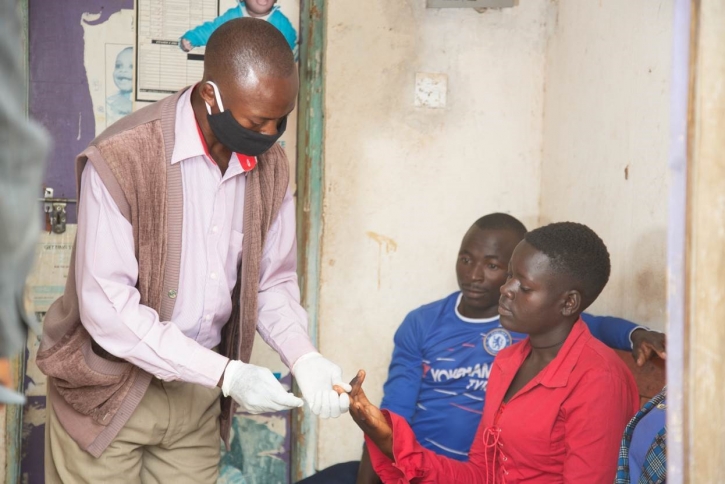Health Workers’ Commitment Improves Quality of Youth-friendly Health Services

Background
“Delivering youth-friendly health services used to be a challenge for us,” says Isa Asiimwe, the Senior Health Inspector, Kyantungo Health Centre IV, Kalangaalo Sub County, Mityana District, Uganda. However, all this changed after the launch of the TeamUp program. “Our Health Centre was identified as one of the key service delivery points. The facility leadership was contacted to establish working modalities and to strengthen link between the community and the facility as a means of enhancing services’ uptake.”
But even with the establishment of working modalities, Mr. Asiimwe noted that unfortunately, the facility leadership was unable to hold regular meetings to discuss and address issues affecting the delivery of youth-friendly health services. Additionally, some health workers lacked the requisite capacity on how to handle young people and offer youth-friendly health services. As a result, the facility staff faced challenges regarding extending youth-friendly health services to young people, both at the health facility and in the communities.
Intervention
In May 2019, Action 4 Health Uganda (A4HU), one of the Consortium Partners implementing the TeamUp Program in Mityana District, Uganda, conducted a training of Health Workers in Youth-friendly and Responsive Health Services (YFRHS). The training aimed at equipping health workers with knowledge and skills towards improving the way service providers respond to the needs of young people and improve providers’ ability to communicate with other stakeholders to improve young people’s health. Over the next period, the project helped the Health Facilities to review and update the youth-friendly services requirements (YFSRs) and discuss how the need could be met.
After the Health Facilities updated the Youth-friendly and Responsive Health Services (YFSRs), they met with the project staff, and together they developed an action plan for strengthening delivery of youth-friendly services both at the health facility and community level. Together they committed to joint planning of health education sessions and integrated outreaches as well as strengthening the adolescent clinics on designated days at health facilities. A comprehensive plan for establishing and or strengthening of youth-friendly corners was generated.
Outcomes
Over time, health facilities worked with project staff to operationalise the action plans, and joint activity implementation commenced. Health workers work directly with community-based youth structures including Peer Facilitators and Reproductive Health Youth Champions to mobilise and organise communities for the outreaches. To date, seven (7) youth-friendly corners have been set up and six (6) adolescent clinics are functional. This expressly shows the strength of the health workers’ commitment to its community.
It has been observed that since the revitalization of adolescent clinics and youth-friendly corners, there has been a visible improvement in attendance at the health facilities, and more young people are accessing services. With the meaningful involvement of health workers in health education sessions, more young people are accessing sexual and reproductive health (SRH) information, and many are being referred for services.
“On a single day, the Health Facility receives an average of 45 (% of clients) young people. When compared to 2018 and 2019, we received 32% and 55% of the clients as young people (15-30) respectively during Health Facility visits. As of August 2020, out of the people who visited the Facility, 61% were young people. We think this is because the Peer Facilitators and Youth Champions are helping us to encourage young people to seek for youth-friendly health services at the facility, and the trained Health Workers are now more responsive to young peoples’ health needs,” Mrs Safinah Namutebi, Health Worker, Malangala Health Centre III.
The health facility staff have built a cordial relationship with the young people. This makes them (young people) feel confident in their health care providers and more willing to come to the facility for care and to discuss reproductive health issues particularly HIV and family planning.

